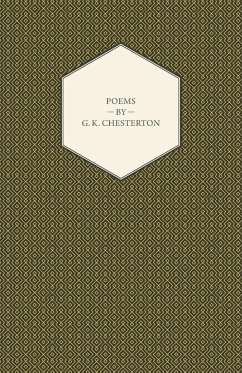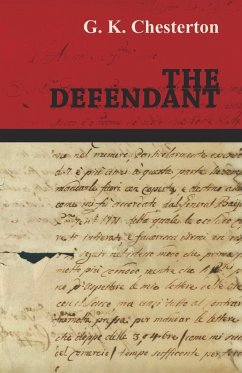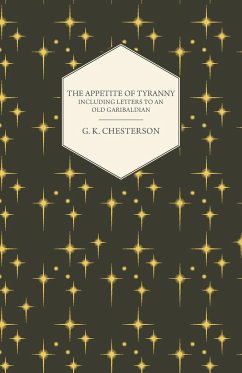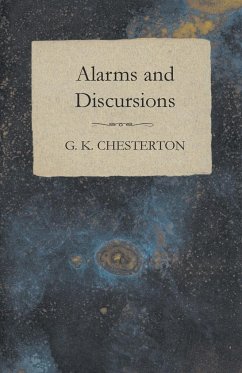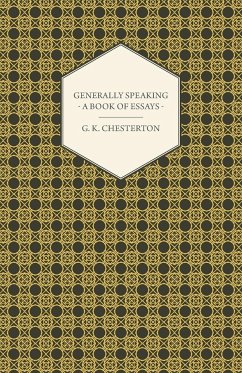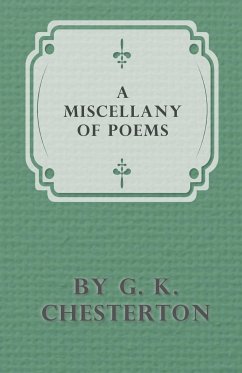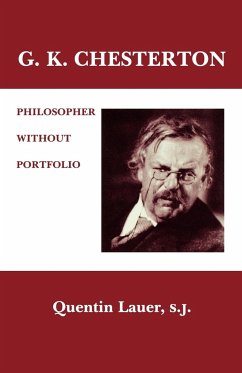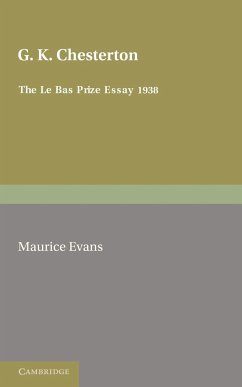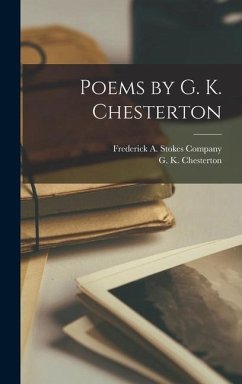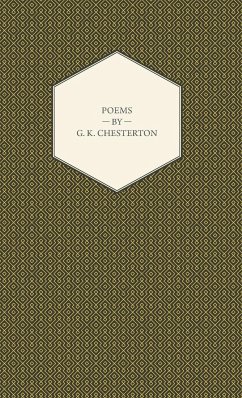
Poems by G. K. Chesterton
Versandkostenfrei!
Versandfertig in 1-2 Wochen
42,99 €
inkl. MwSt.
Weitere Ausgaben:

PAYBACK Punkte
21 °P sammeln!
This antiquarian volume contains a collection of poems written by Gilbert Keith Chesterton. A delightful collection worthy of a place atop any bookshelf, this compendium is a veritable must-have for fans of Chesterton's work, and is one not to be missed by the discerning collector. The poems contained herein include: 'To Edmund Clerihew Bentley', 'To Hilaire Belloc', 'To M.E.W., Lepanto', 'The March of the Black Mountain', 'Blessed are the Peacemakers', 'The Wife of Flanders', 'The Crusader Returns from Captivity', 'Glencoe', 'Love's Trappist', and many more. Gilbert Keith Chesterton (1874 - 1...
This antiquarian volume contains a collection of poems written by Gilbert Keith Chesterton. A delightful collection worthy of a place atop any bookshelf, this compendium is a veritable must-have for fans of Chesterton's work, and is one not to be missed by the discerning collector. The poems contained herein include: 'To Edmund Clerihew Bentley', 'To Hilaire Belloc', 'To M.E.W., Lepanto', 'The March of the Black Mountain', 'Blessed are the Peacemakers', 'The Wife of Flanders', 'The Crusader Returns from Captivity', 'Glencoe', 'Love's Trappist', and many more. Gilbert Keith Chesterton (1874 - 1936) was an English writer, philosopher, theologian, poet, orator, dramatist, journalist, literary and art critic, biographer, and Christian apologist, often referred to as the "prince of paradox." We are republishing this vintage work in a modern, affordable edition complete with a specially commissioned new biography of the author.




